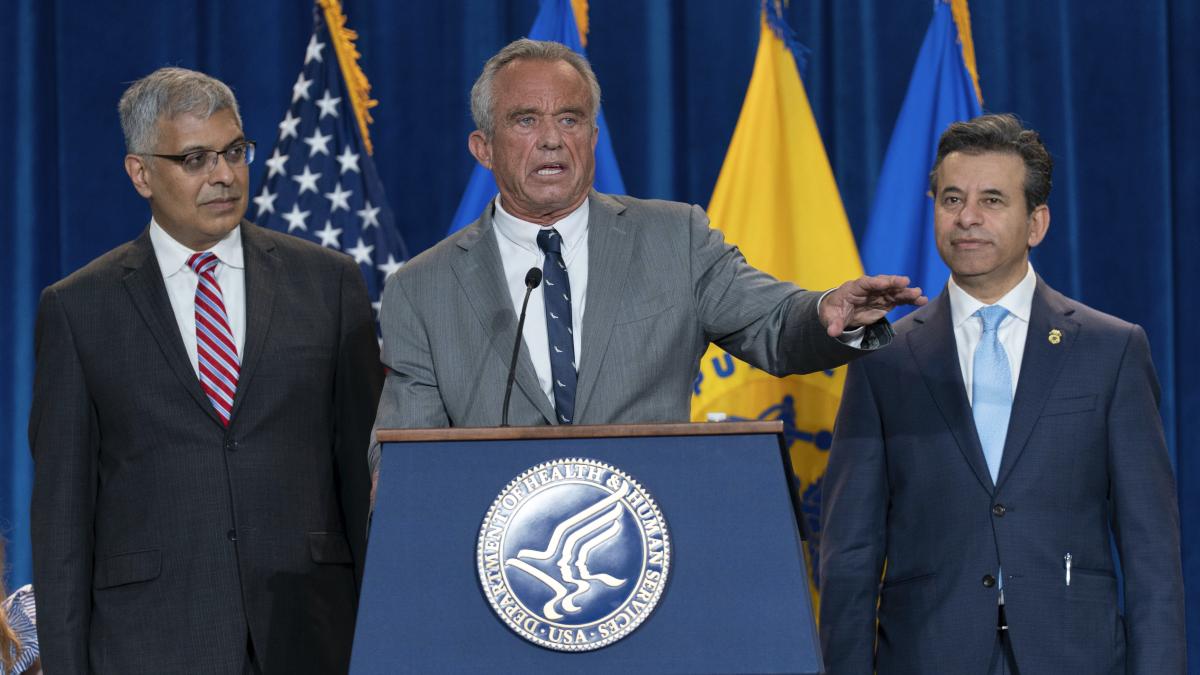“`html
In an alarming revelation that has sent shockwaves through the health community, Robert Kennedy, head of the United States Health, has declared that an “environmental toxin” is responsible for the rising rates of autism, calling it an “autism epidemic.” Despite the overwhelming scientific consensus since the 1970s affirming that genetics plays a pivotal role in this complex condition, Kennedy boldly claims, “Studying the genetic causes of autism leads us to a dead end.” He insists that it is, in fact, environmental exposure that drives this so-called epidemic.
Challenging the Scientific Consensus
Kennedy’s controversial assertions don’t stop with autism; he draws parallels with other conditions like attention deficit disorder and Tourette syndrome. He argues that the increased diagnoses in recent years indicate an epidemic, despite many experts arguing that better awareness and diagnosis are the real culprits. Is the medical establishment too entrenched in their old ways?
“I never heard of any of these diseases when I was a child… Today, we are spending around $1.8 billion a year on chronic disease treatments, taking our nation to the brink of bankruptcy!” – Kennedy at the Department of Education.
Vaccines, Toxins, and Government Overreach
Kennedy, who has long positioned himself alongside Donald Trump, has previously stated that vaccines contribute to child autism, tapping into a rich vein of conspiracy theories. The NIH is set to collect private medical records from millions of Americans as a part of Kennedy’s initiative to uncover the pathways to autism. This raises serious concerns about governmental data collection methods and privacy invasion.
The NIH’s Risky Data Collection
NIH’s director, Jay Bhattacharya, admits that the current data systems are fragmented and hard to access. In a bid to fight this “epidemic,” they will also access sensitive genomic data and private insurance claims, increasing fears among citizens about their privacy. “The idea is to gather where we can,” Bhattacharya stated, leaving many skeptics worried about the potential misuse of such data.
The Stigma of Autism
Kennedy’s rhetoric has alarmed many in the scientific community—he’s not just challenging established norms, he is stigmatizing individuals with autism. “Autism destroys families!” he lamented dramatically, casting a shadow over the families grappling with this condition. He paints an almost dystopian picture of children with autism, claiming they will never contribute to society, but his portrayal rests on a dangerous generalization.
“They are children who will never play baseball, never have a job, never go to the bathroom without help,” – Kennedy.
Conclusion: An Ambitious and Controversial Mission
Robert Kennedy’s vision to “eradicate” the causes of autism by September is ambitious, to say the least. Whether or not he will be able to deliver on this promise remains to be seen, but one thing is clear: his approach is bound to ignite outrage and skepticism. The narrative of an “autism epidemic” deserves our scrutiny, as it could lead us down a path of misinformation and unwarranted fear.
“`












